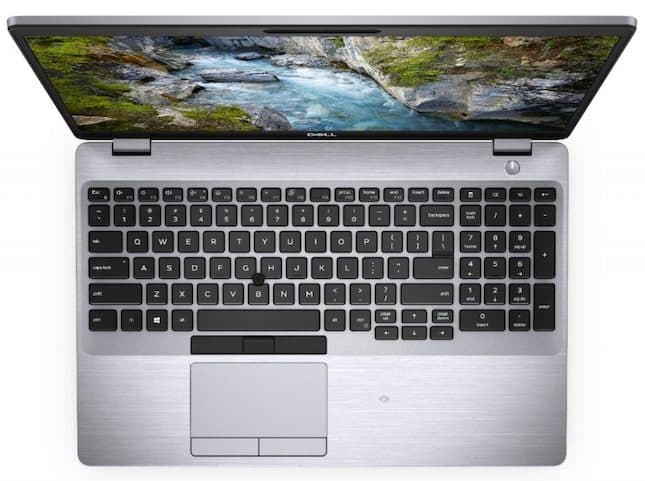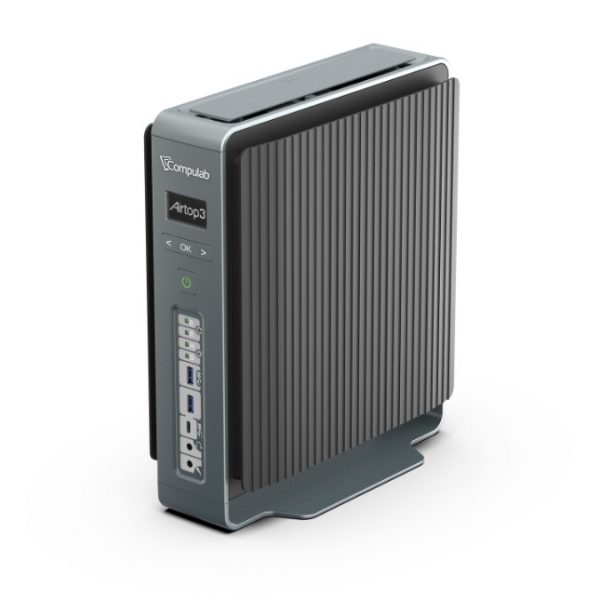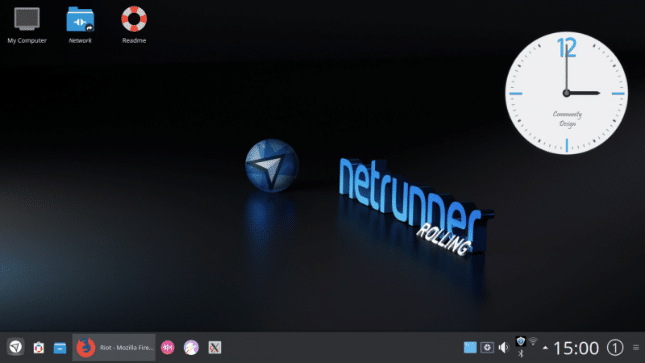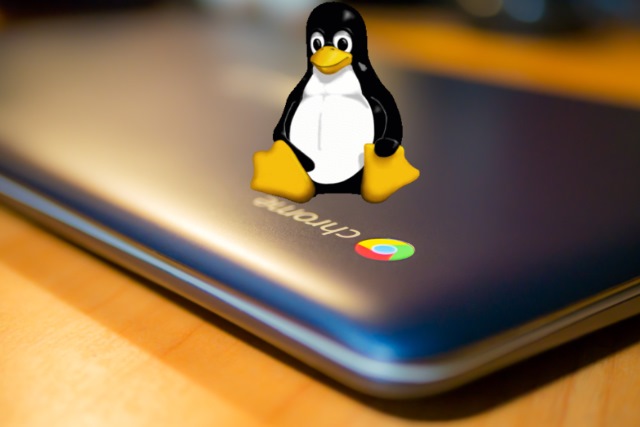
Open source champion Microsoft announces Windows Subsystem for Linux 2 (WSL 2) at Build 2019
It used to be, Microsoft was seen as the enemy of Linux. For some folks in the Linux community, that is still the case -- even though that viewpoint is totally wrong. Look, under the leadership of Satya Nadella, Microsoft has transformed itself, becoming a genuine champion of Linux and other open source projects. Anyone that doubts Microsoft's newfound Linux love should look no further than Windows 10 to see it is the real deal. You see, the latest version of Windows contains the Windows Subsystem for Linux (WSL) -- a compatibility layer for developers and others, allowing them to stay within Windows 10 without the need to dual-boot a Linux distro or run one in a virtual machine.
Today, at the Build 2019 developer conference, Microsoft announces the future of this project -- Windows Subsystem for Linux 2. Believe it or not, WSL 2 will ship with an actual Linux kernel, meaning full system call compatibility! This will also allow Microsoft to issue kernel improvements by only updating the kernel -- no need to update the entire WSL. Best of all, WSL 2 will be tremendously faster than WSL 1.

Dell Precision 3540 and 3541 'Developer Edition' mobile workstations come with Ubuntu Linux
Dell has been manufacturing excellent value-focused computers for years. Back in the day I was a computer salesman at a now-defunct brick and mortar CompUSA. People would often walk into the store, look at what we charge, ask if we could match Dell's price for a similarly configured machine, we would say no, and they would leave. It was virtually impossible to compete with Dell's high-volume online business model from a cost perspective.
Back in those days, Dell was in a monogamous relationship with Microsoft, but in modern times, the computer-maker is no longer exclusive with Windows. Actually, with its "Developer Edition" computers (also known as "Project Sputnik"), Dell also offers Ubuntu -- a Linux-based operating system. That may not seem like a big deal today, but years ago, when it first happened, it was huge news.

Fedora 30 Linux distro is here
Fedora may not be the prettiest Linux distribution (that honor belongs to deepin), but it is still the overall greatest such operating system. Why? Well, not only is it the best representation of what a Linux distro should be (thanks to its focus on truly free and open source packages), but it is fast, modern, and very stable. Not to mention, it showcases the best desktop environment, GNOME. It should come as no surprise that the controversial father of Linux, Linus Torvalds, chooses Fedora as his daily operating system.
Today, following a fairly short beta period, Fedora 30 is officially here! The most exciting aspect, for workstation/desktop users at least, is the update to GNOME 3.32. Of course, that is hardly the only notable update -- the DNF package manager is getting a performance boost, for instance. In other words, this is a significant operating system upgrade that should delight both existing Fedora users and beginners alike.

deepin 15.10 is here -- download the most beautiful Linux distribution now!
Windows 10 is a functional operating system, but goodness, it is not at all attractive. When I use Microsoft's OS, I don't get feelings of joy or happiness. Windows 10's design is very bland and seemingly uninspired. By comparison, Apple's macOS makes me very happy. And yes, appearance matters -- a good user interface and design can motivate the user and help them to be more creative.
As great as macOS is, there is a Linux distribution that rivals its beauty. Called deepin, this operating system is now based on Debian Stable (previously Debian Unstable), and provides an absolutely drop-dead gorgeous user interface. In fact, I am confident to say it is the most beautiful Linux distro. The newest version, deepin 15.10, is now available for download. It is chock full of bug fixes, and also, many new features. One of the most significant changes is dde-kwin is now the default window manager. Users should experience improved performance as a result.

Compulab Airtop3 Linux Mint mini computer has fanless Intel Core i9 9900K and NVIDIA Quadro RTX 4000
The whir of a fan. This is a sound many computer enthusiasts know all too well. Whether it is a single fan in a laptop, or 12 fans in a gaming desktop, the noise can be distracting. While some folks learn to tune out fan noise (and some even end up liking it!), let's be honest, a silent PC is preferable for most. Unfortunately, passively cooled computers are often under-powered, meaning you must decide between performance and silence.
But what if you didn't have to pick? What if I told you a company is selling a mini computer with a passively cooled Intel Core i9 9900K? Yeah, you would probably think I am telling lies, but actually, it is the truth! The Compulab "Airtop3," as it is called, features that high-end processor (plus others) and does not have a fan! In addition, the edge server can be configured with an NVIDIA Quadro RTX 4000 (or GeForce GTX 1660 Ti) and is loaded to the gills with connectivity options. Not to mention, the diminutive computer looks very beautiful too. Best of all, it can be configured to ship with Linux Mint!

Scientific Linux is dead, and that's a good thing
There are too many Linux distributions these days. While it can be argued that having too much choice is never a bad thing, the truth is, having so many distros causes resources to be spread too thinly. There is a lot of redundancy and waste, and eventually, the chickens will come home to roost -- we will see Linux-based operating systems begin to drop like flies.
Linux Mint is alive for now, but infighting and feelings of defeat have many users worried about its future. Sadly, another Linux distribution, Scientific Linux, really has died. This operating system was based on Red Hat Enterprise Linux (RHEL), and maintained by some significant members of the scientific community, such as The Fermi National Accelerator Laboratory and CERN. While current versions (6 and 7) will continue to be supported, future development has permanently ended, with the organizations instead turning to CentOS -- another distro based on RHEL.

Netrunner Rolling 2019.04 Arch-based Linux distribution available for download
Rolling release operating systems are really cool, because they are constantly being updated. This can ensure that the user is kept up-to-date without effort. Why is that good? Well, vulnerabilities are patched quickly, while the latest and greatest features of popular programs are regularly introduced. Of course, there is a potential downside too -- it could introduce bugs that could lead to instability. Ultimately, the user must decide if a rolling release best meets their needs.
One of the best such operating systems is Netrunner Rolling. I love this Arch/Manjaro-based operating system for several reasons, but mostly for its elegant implementation of the KDE Plasma desktop environment. It is themed beautifully, providing a smooth user interface that is familiar to those switching from Windows. Not to mention, it comes pre-loaded with many excellent packages, making it a great "out of the box" Linux experience for newbies. Just in time for Easter, Netrunner Rolling 2019.04 becomes available for download -- the first ISO refresh since August of last year.

Ubuntu Linux 19.04 'Disco Dingo' is finally available for download
Christmas. Thanksgiving. Ubuntu release day. What do those three things have in common? They are days that cause many people to get excited. Back in the day, computer users would get excited about a new version of Windows too, such as Windows 95, XP, and 7 to name a few. Since Windows 8, however, Microsoft's new operating systems are hardly a reason for celebration. New versions of Ubuntu, the extremely popular Linux-based operating system, does pique the interest of many, including yours truly.
Today, Linux users around the world should celebrate, as Ubuntu 19.04 "Disco Dingo" is finally here! Following the Beta release, the stable version is now available for download. Keep in mind, version 19.04 is not LTS (Long Term Support), meaning it is only supported until January 2020.

New Kodi 18.2 'Leia' RC arrives -- download it now!
The Kodi Foundation released Kodi 18 'Leia' three months ago, bringing a number of big new features to the hugely popular home theater software, including a new Games area, updated and improved PVR backend clients, and a redesigned Music section.
A month later, a bug fix release candidate -- Kodi 18.1 -- arrived, and today there’s another new release available to install.

Chrome OS 75 has full USB support in Linux apps
Google has added full USB support for Linux apps in the dev build of Chrome OS 75. The new feature arrived in build 75.0.3759.4 of the operating system and helps to improve the experience of running Linux apps on a Chromebook.
While USB support is not a brand-new feature, anyone who has tried using Linux apps on a Chromebook will be well aware that it has been a bit, well, ropey to say the least. Now this changes.

MX Linux 18.2 is here -- download the Debian-based operating system now
With the Linux Mint development being severely strained, and the future of that particular operating system being in slight doubt, many Linux "haters" are seemingly taking pleasure. Hardcore fans of Microsoft Windows will point to the Mint situation as proof that Linux (and open source ideology overall) doesn't have a future on the desktop. Thankfully, these negative people couldn't be more wrong. Regardless of what happens with Mint, Linux still has a bright future -- not only on mobile and servers, but desktop too. Maybe that success will be Chrome OS or Android. Whatever. The point is, the open source Linux kernel cannot be stopped.
As people are concerned about Linux Mint, another distro has been gaining in popularity. While not new, the attention it gets has been growing lately. Called "MX Linux," it is based on the excellent Debian Stable and uses the lightweight Xfce desktop environment by default. If you are intrigued by this newly en vogue distro, I have good news -- a new version is available for download. While not a major release,the 18.2 ISO is chock full of changes, fixes, and of course, updated packages. If you hate systemd (as many do), I have good news -- it is not enabled by default (although it is included).

SuperTuxKart 0.10 RC1 is here -- download the free open source Mario Kart clone now!
Nintendo is the king of the "Kart Racing" genre. While there are many imitators -- some of which are very good -- Mario Kart remains the best. And no, it is not just about mascots, although it does help having Mario, Luigi, Donkey Kong and such. Actually, the real magic is the gameplay -- solid controls and well-designed levels. The Mario Kart franchise is consistently excellent.
The problem? Mario Kart costs money and, emulators aside, only works on Nintendo consoles. If you want to get your kart racing on, but you don't want to open your wallet, you are in luck! SuperTuxKart is an excellent clone of Nintendo's game, featuring popular open source mascots. Best of all, the open source game is not only cross-platform, but totally free! The upcoming SuperTuxKart 0.10 will even introduce network multiplayer play, and now that version has reached Release Candidate status. And yes, you can download and play SuperTuxKart 0.10 RC1 now!

Microsoft and Ubuntu-maker Canonical launch Visual Studio Code snap for Linux
One of the most frustrating things for Windows users that switch to Linux is learning to install software. With Microsoft's operating system, you search the web for the software you want, download it, and install it. With Linux-based operating systems, however, programs are typically installed through a centralized app center or through the terminal. The Linux approach is arguably safer, as Windows users can easily be tricked into downloading malware. Windows 10 tries to emulate the centralized software center with the Microsoft Store, but users have largely rejected it.
Thanks to Canonical's wildly popular snaps (and other containerized packages, such as Flatpak), Linux users can more easily install software -- it should be more familiar to former Windows users. Snaps will work on most distributions too, meaning there is less work involved for software developers -- there is no need to create distro-dependent versions. Today, Microsoft furthers its commitment to Linux by releasing a snap version of Visual Studio Code. No, the source-code editor is not the Windows-maker's first snap -- it also released one for Skype, for instance.

Fedora 30 Beta is here -- try the next version of the best Linux distro now
Fedora is the best overall Linux distribution. It's really not up for debate -- even the father of Linux, Linus Torvalds uses it. The focus of the operating system is truly free and open source software, making it one of the most pure experiences. And while there are many flavors to choose with various desktop environments, the default is GNOME -- the overall best DE. While Fedora maybe isn't the best distro for beginners, it should be the eventual choice for those that "level up" to being an experienced Linux user later.
Today, after a bit of a delay, Fedora 30 is finally available for download. Details are a bit sparse regarding new features, but we will add them as we know more. What we do know, however, is the Workstation variant (which is what most users care about) uses GNOME 3.32 -- the latest and greatest version of that desktop environment.

Linux Mint 19.2 'Tina' is on the way, but the developers seem defeated and depressed
I have been a bit critical of Linux Mint in the past, but the truth is, it is a great distribution that many people enjoy. While Mint is not my favorite desktop distro (that would be Fedora), I recognize its quality. Is it perfect? No, there is no such thing as a flawless Linux-based operating system.
Today should be happy times for the Linux Mint community, as we finally learn some new details about the upcoming version 19.2! It will be based on Ubuntu 18.04 and once again feature three desktop environments -- Xfce, Mate, and Cinnamon. We even found out the code name for Linux Mint 19.2 -- "Tina." And yet, it is hard to celebrate. Why? Because the developers seem to be depressed and defeated. They even appear to be a bit disenchanted with Free Software development overall.
